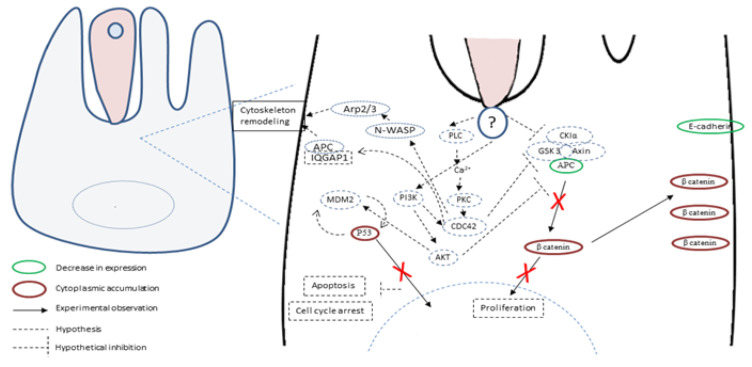Figure 4.
Hypothetical host-cell signaling pathways linking Cryptosporidium parvum infection and tumorigenesis. Different studies have shown that C. parvum induces cytoskeleton remodeling and actin reorganization through the implication of several intracellular signals, including phosphatidylinositol 3-kinase (PI3K) and Cdc42. In addition, in an experimental model, Adenomatous Polyposis Coli (APC) and E-cadherin labelings were decreased while β-catenin and the P53 tumor suppressor labelings were increased in the cytoplasm of C. parvum-infected epithelial cells. β-catenin was found localized in a juxtamembraneous position, suggesting a role of the non-canonical Wnt pathway in this transformation process. P53 was not translocated into the nucleus, and its labeling increased in the cytoplasm where P53 could regulate key metabolic pathways associated to apoptosis and cell cycle arrest.

